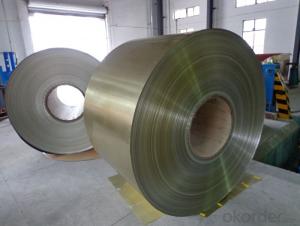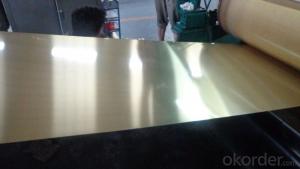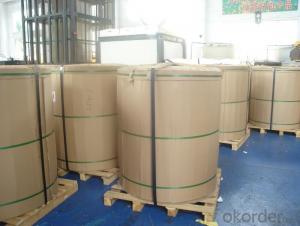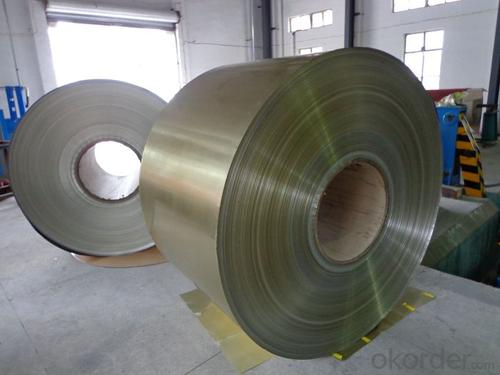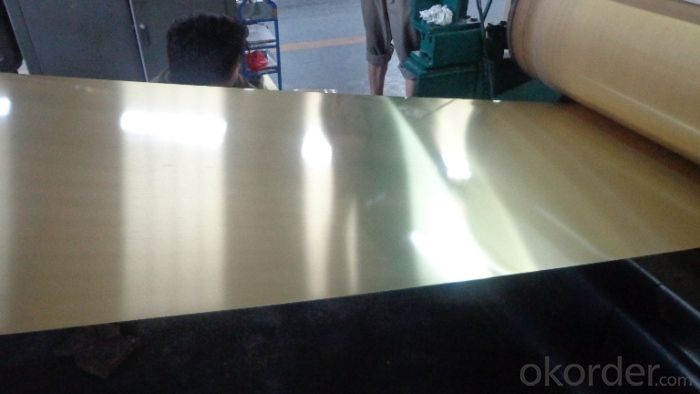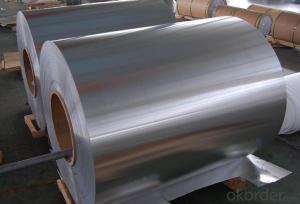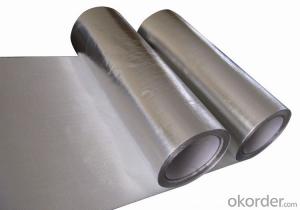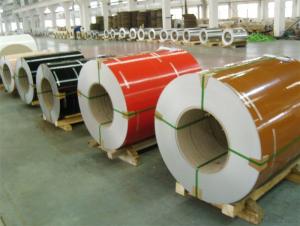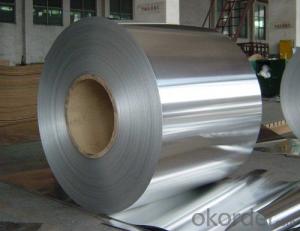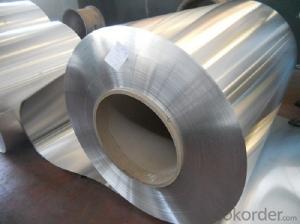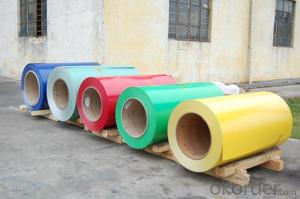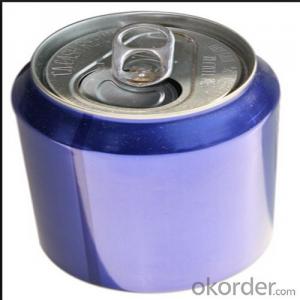040 Aluminum Coil for Coated Beverage Can Stock
- Loading Port:
- Shekou
- Payment Terms:
- TT OR LC
- Min Order Qty:
- 7 m.t.
- Supply Capability:
- 100000 m.t./month
OKorder Service Pledge
OKorder Financial Service
You Might Also Like
1.Structure of Coated Aluminum Coils for Beverage Can Stock
Our coated aluminium coils are widely used in beverage can stock, such as can ends, can lids, can tabs, aluminium easy-can-cover and ring-pull, etc.
We normally use 5052 H19; 5052, H36; 5182 H19; 5182 H48, 5182 H49 as base coils. Based on ordinary aluminum, we add Mn and Mg, so as to increase tensile strength and elongation.
As for coating, we normal coat gold color for lids, red, blue, etc for tabs. We also can adjust coating according to color of customers and offer personalized services.
We use large wave shear, transverse shear and longitudinal cut system so as to meet different specifications of customers.
2. Main Features of Coated Aluminum Coils for Beverage Can Stock
• Light Weight
• High Flatness
• Good Weathering
• Colorful
• Recycling
• Saving Energy
• Rustproof
3. Coated Aluminum Coils for Beverage Can Stock Images
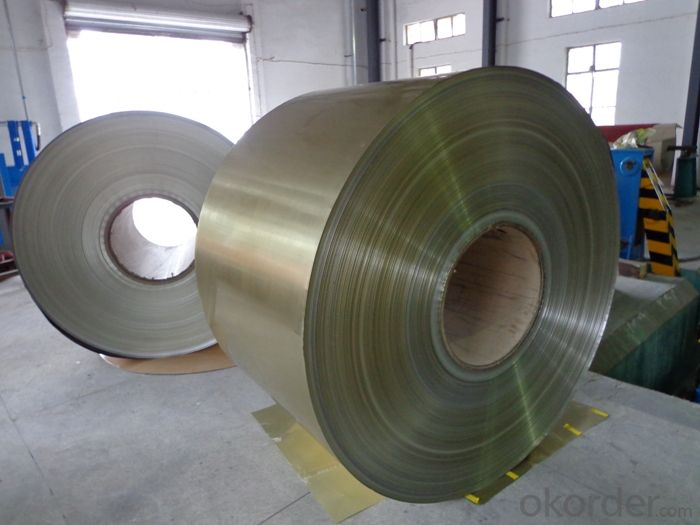
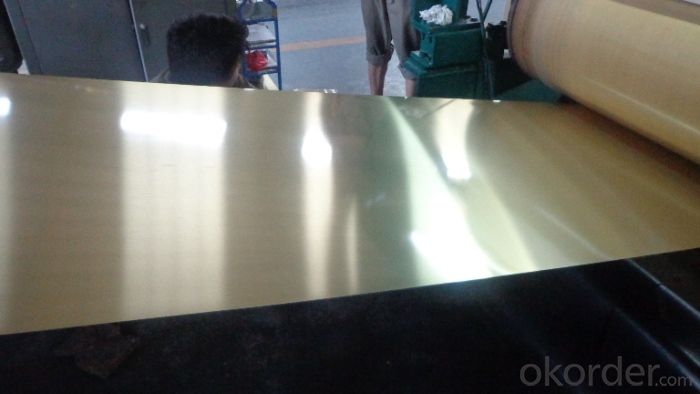
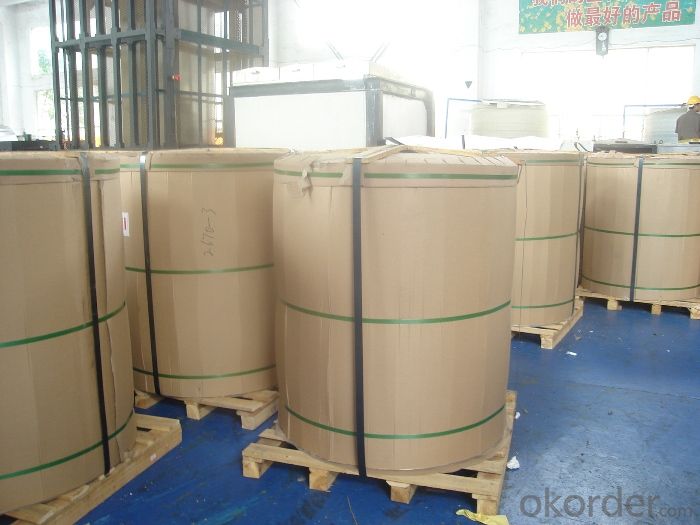
4. Specification of Coated Aluminum Coils for Beverage Can Stock
ALLOY | TEMPER | THICKNESS | WIDTH | COIL OR LENGTH |
5052 5182 | H19 H36 H48 H49 | 0.22-0.5mm | 500-1600mm | AS PER YOUR REQUIREMENTS |
A.What about inspections to guarantee quality?
For each order, we will arrange strict inspection for raw materials, inspection during production and inspection for finished goods.
With requirement of customers, we also can arrange the third party inspection.
B.What about delivery?
We will put order in production schedule after order gets confirmed against copy of TT or L/C. Normally it takes about one month for production. Exact shipment schedule is different based on different sizes and quantity.
C.What is the MOQ?
5 tons for each size.
D. Where have you exported?
We have exported to many countries. Main markets include South East Asia, Middle East, North America, South America, etc.
- Q: Are aluminum coils suitable for chemical processing applications?
- Yes, aluminum coils are suitable for chemical processing applications. Aluminum is known for its excellent corrosion resistance, making it ideal for use in environments where chemicals are present. It is resistant to many acids, alkalis, and solvents, ensuring the durability and longevity of the coils. Additionally, aluminum coils offer excellent heat conductivity, allowing for efficient heat transfer during chemical processing. Their lightweight nature also makes them easy to handle and install. Overall, aluminum coils are a reliable choice for chemical processing applications due to their corrosion resistance, heat conductivity, and durability.
- Q: What is the price range of aluminum coils?
- The price range of aluminum coils can vary depending on various factors such as the thickness, width, alloy type, and market conditions. Generally, the price range for aluminum coils can start from as low as $1 per pound for thinner gauge coils, and can go up to $3 per pound or higher for thicker gauge coils or specialized alloys. It's important to note that these prices are approximate and can fluctuate based on market demand, availability, and other economic factors. It is recommended to contact suppliers or consult market research reports for accurate and up-to-date pricing information.
- Q: Is it safe and effective to use aluminum coils for baking purposes?
- <p>Aluminum coils are generally not recommended for baking. While aluminum is a good conductor of heat and is used in some baking pans, using aluminum coils directly in baking can lead to uneven heating and potential health concerns due to the leaching of aluminum into the food. It's better to use materials specifically designed for baking, such as silicone or metal baking sheets, which are safe and provide even heat distribution.</p>
- Q: How to identify the quality of color coated aluminum coil and sheet?
- Color coated aluminum coil is a kind of aluminum coil. As for qualified color coated aluminum coil, the surface has no impression, holiday and damage through the coating, and also no ripple, scratch and swell. All these are easy to see. However, the most important is the color difference of the color coated aluminum coil which is not obvious but will influence the decoration effect. Now the surface of curtain wall aluminum sheet will also be treated with electrostatic spraying. The power coating materials can have dozens of colors and realize good decorative effect, with polyurethane, polyethylene expansion resin and epoxy resin as raw materials, high color retention pigment as auxiliaries.
- Q: Is it possible to utilize aluminum coils in the construction of solar panels or wind turbines?
- <p>Aluminum coils can be used in the construction of both solar panels and wind turbines, but not as the primary material for energy conversion. In solar panels, aluminum is often used for framing and mounting structures due to its lightweight and corrosion-resistant properties. For wind turbines, aluminum is utilized in the manufacturing of certain components such as nacelle shells and towers, but the main rotor blades are typically made from composite materials for their strength and aerodynamic properties. Thus, while aluminum plays a supportive role in these renewable energy technologies, it is not the core material for capturing solar or wind energy.</p>
- Q: what is aluminium toxic amount on a human's general physiological system? and what is the usual amount aluminium injested?thankyou
- It is estimated that the normal person takes in between 3 and 10 milligrams of aluminum per day. Aluminum is the most abundant metallic element produced by the earth. It can be absorbed into the body through the digestive tract, the lungs and the skin, and is also absorbed by and accumulates in the bodies tissues. Aluminum is found naturally in our air, water and soil. It is also used in the process of making cooking pots and pans, utensils and foil. Other items such as over the counter pain killers, anti-inflammatory products, and douche preparations can also contain aluminum. Aluminum is also an additive in most baking powders, is used in food processing, and is present in antiperspirants, toothpaste, dental amalgams, bleached flour, grated cheese, table salt, and beer, (especially when the beer is in aluminum cans). The biggest source of aluminum, however, comes from our municipal water supplies. Aluminum is excreted by the kidneys, therefore toxic amounts can impair kidney function. Aluminum can also accumulate in the brain causing seizures and reduced mental alertness. The brain is normally protected by a blood-brain barrier, which filters the blood before it reaches it. Elemental aluminum does not pass easily through this barrier, but certain compounds contained within aluminum, such as aluminum fluoride do. Interestingly, many municipal water supplies are treated with both aluminum sulfate and aluminum fluoride. These two chemicals can also combine easily in the blood. Aluminum fluoride is also poorly excreted in the urine.
- Q: Are aluminum coils suitable for insulation applications?
- No, aluminum coils are not suitable for insulation applications.
- Q: Can aluminum coils be used in the production of aluminum cladding?
- Yes, aluminum coils can be used in the production of aluminum cladding.
- Q: This question asks for methods to determine whether an aluminum coil is made from recycled material.
- <p>Determining if an aluminum coil is made from recycled material can be challenging without specific testing, as recycled and virgin aluminum can look identical. However, there are a few indicators: 1) Look for certification or labels on the coil indicating it's made from recycled material. 2) Check with the supplier for documentation or a certificate of analysis that confirms the material's origin. 3) Analyze the coil's composition; recycled aluminum may have slight variations in purity or alloy composition. 4) Use spectrographic analysis to determine the exact composition of the aluminum, which can sometimes reveal if it's recycled. Ultimately, transparency from the supplier is key to confirming the source of the aluminum.</p>
- Q: Is it safe to use aluminum coil for food storage?
- <p>Using aluminum coil for storing food is not recommended. Aluminum can react with acidic or alkaline foods, potentially leaching aluminum into the food. This can be harmful to health, especially over time. Instead, opt for food-safe materials like glass, stainless steel, or BPA-free plastics for food storage to ensure safety and prevent contamination.</p>
Send your message to us
040 Aluminum Coil for Coated Beverage Can Stock
- Loading Port:
- Shekou
- Payment Terms:
- TT OR LC
- Min Order Qty:
- 7 m.t.
- Supply Capability:
- 100000 m.t./month
OKorder Service Pledge
OKorder Financial Service
Similar products
Hot products
Hot Searches
Related keywords
